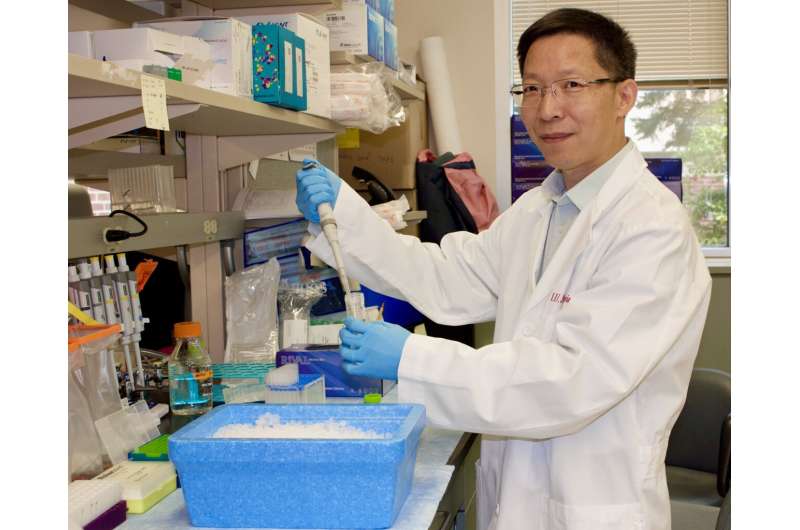Indiana University School of Medicine researchers have made a significant breakthrough in developing a new gene therapy approach that restores full-length dystrophin protein, which could lead to new treatments for people with Duchenne muscular dystrophy (DMD).
The study, published in Nature Communications, demonstrates the effectiveness of their novel gene therapy technology in improving muscle tissue and overall strength in mice models with DMD.
DMD is a genetic disorder caused by mutations in the DMD gene, resulting in a lack of the protein dystrophin. This deficiency leads to progressive muscle weakness and loss of muscle tissue over time. Patients with the disease experience impaired mobility, heart and lung problems, and ultimately a shortened life expectancy.
“Current gene therapy for Duchenne muscular dystrophy utilizes a truncated version of dystrophin,” said Renzhi Han, Ph.D., senior author of the study and professor of pediatrics at the IU School of Medicine. “Unfortunately, this option doesn’t fully protect the muscles because it lacks many important functional domains of full-length dystrophin.”
While the U.S. Food and Drug Administration recently approved a micro-dystrophin gene therapy for DMD, Han said the therapeutic outcomes have been less satisfactory than expected.

Building on their experience using adeno-associated virus methods to deliver extra-large therapeutic genes into cells, Han and his team at the Herman B Wells Center for Pediatric Research developed a triple-adeno-associated virus vector system to deliver a complete version of the dystrophin protein into the muscles.
“We optimized and tested our new three-vector system to make sure it produced and assembled the full-length dystrophin protein effectively,” Han said. “Our data confirmed we successfully restored full-length dystrophin in both the skeletal and heart muscles of mice with DMD, leading to significant improvements in their muscle health, strength and function.”
Han has filed a provisional patent application for his triple-adeno-associated virus vector system and is collaborating with the IU Innovation and Commercialization Office to advance the treatment toward market availability. He is also seeking additional funding so patients with Duchenne muscular dystrophy have access to promising new treatment options.
“I believe this new gene therapy approach offers significant advantages to patients compared to what they currently have available, and I’m eager to get it into further clinical development,” he said.
More information:
Yuan Zhou et al, Systemic delivery of full-length dystrophin in Duchenne muscular dystrophy mice, Nature Communications (2024). DOI: 10.1038/s41467-024-50569-6
Citation:
New gene therapy approach shows promise for Duchenne muscular dystrophy (2024, July 25)
retrieved 25 July 2024
from https://medicalxpress.com/news/2024-07-gene-therapy-approach-duchenne-muscular.html
This document is subject to copyright. Apart from any fair dealing for the purpose of private study or research, no
part may be reproduced without the written permission. The content is provided for information purposes only.

